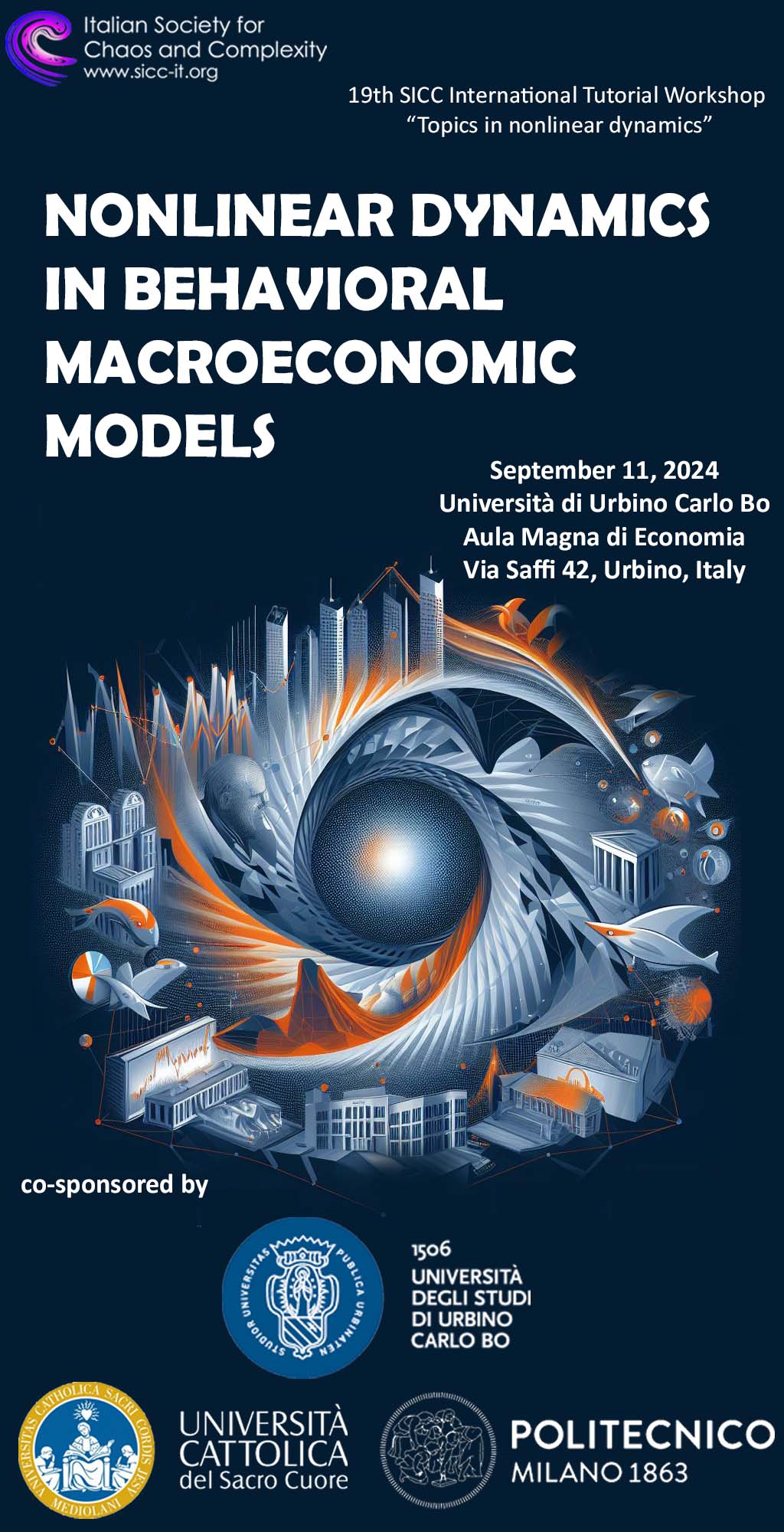
September 12-14, 2024, Urbino, Italy
MDEF is an international research network, created around a group of Italian researchers active since the Eighties of the last century, with the goal of adopting the language and the methodology of the modern qualitative theory of non linear dynamical systems to model and simulate the time evolution of economic, financial and social systems, characterized by complex behaviours and emerging properties resulting from nonlinear interactions, situations of disequilibrium, discontinuities and hysteresis.
Deadlines:
+ registration up to June 15, 2024
+ presentation of a 1-page Abstract deadline: July 31st
A selection of papers presented at MDEF 2024 can be submitted, after the conference in special issues of one of the following international journals; Decisions in Economics and Finance, Macroeconomic Dynamics, Energy Economics, Journal of Dynamics and Games
2024 IEEE WORKSHOP ON COMPLEXITY IN ENGINEERING
Florence, July 22-24,2024
COMPENG is a series of international workshops founded in 2010 aimed at providing a forum for experts and professionals working on the latest developments in complexity science and its application in an engineering perspective. The topics of the workshop round on complex systems and engineering, as Data and data-driven systems, Biophysics, Bio-inspired robotics and biomedical engineering, Complex systems and networks, Control in sensor and actuator networks, Communication and Transportation, Ecosystems and climate, Electronic and opto-electronic systems, Laser dynamics, nonlinear optics and opto-mechanics, Machine Learning, Neurotechnology and neuroscience, Nonlinear dynamics and stochastic processes, Smart grids, and Time-series analysis and modelling.


Accedi all'archivio degli ultimi eventi:

Società Italiana Caos e Complessità
c/o Federazione delle Associazioni Scientifiche e Tecniche (FAST) - Piazzale Morandi, 2 - 20121 Milano (MI) - C.F.: 05053481007
Copyright 2016 © SICC.IT